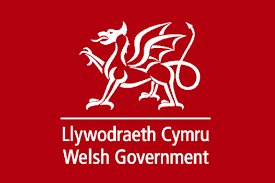BSG comments on Next Generation Fund in Digital Britain
Forward looking, innovative and proportionate proposal that will benefit all
The Broadband Stakeholder Group, the UK’s leading advisory group on broadband, believes Lord Carter’s proposed Next Generation Fund provides an innovative solution to a problem that governments around the world are struggling to address – how to extend the reach of next generation broadband networks beyond just towns and cities.
“The challenge is to find the intervention sweet spot, not so much as to be heavy handed and not so little as to be ineffective. This intervention could be just enough to incentivise investors in areas that would otherwise be considered commercially unviable,??? comments Antony Walker, Chief Executive of the Broadband Stakeholder Group.
These proposals set out a smart and proportionate approach to ensuring that families, businesses and communities across the UK have access to the broadband they need now and will need in the future.
They are smart because they recognise the wider national financial constraints and take the pressure off public finances.
They are proportionate because they only address areas where commercial interest is unlikely. As a result the scale of the intervention is smaller than in other markets we have seen around the world.
“The cost to consumers is relatively small: less than the price of one cinema ticket per year. But the scheme would generate sufficient funds to tip the balance of investment in many areas that would otherwise face an indefinite wait for next generation broadband,??? says Walker. “This is the kind of forward looking, innovative and proportionate response that the BSG has been calling for over the last two years.???
How would it work?
“Our initial assessment is that the 50p levy could generate around £150 million per year, or around £1billion over seven years. We believe this funding could ensure that many of the 8 or 9 million homes that are otherwise unlikely to be served in the medium to long term get next generation broadband.
“When you look at a map of Britain you can see that these households are not just in remote areas, in fact they are all over the country – we are talking about the edges of towns as well as villages and the countryside – and make up a third of all UK homes,??? continues Walker.
The Fund is not intended to cover the full cost of deployment in rural areas, but to provide sufficient additional funding to make areas that would otherwise be uneconomic more attractive to investment. Both existing players and new entrants would be able to bid for the funding to support investment in these locations.
The benefit of putting the fund in place now, is that companies, local authorities and even local communities can start planning and developing new solutions that should mean that next generation broadband deployment is extended in the most effective and efficient way possible.
Return on investment
Walker adds, “Our analysis shows that the Next Generation Fund would be worth around £1 billion by the end of the scheme in seven years time. There are several ways of measuring society’s return on investment for this money including improved healthcare, better access to education, greater employment, innovation within SMEs.
“We believe that even if you looked at just one of these areas alone you would see a return that will justify £1billion of investment in the medium to long term. However, these returns won’t happen automatically and the next challenge for government and industry is construct and implement the Next Generation Fund effectively. It will be important to ensure that it is both pro-competitive and supports technology neutrality, in line with the market.???
BSG response to Next Generation Fund in Digital Britain – full press release





